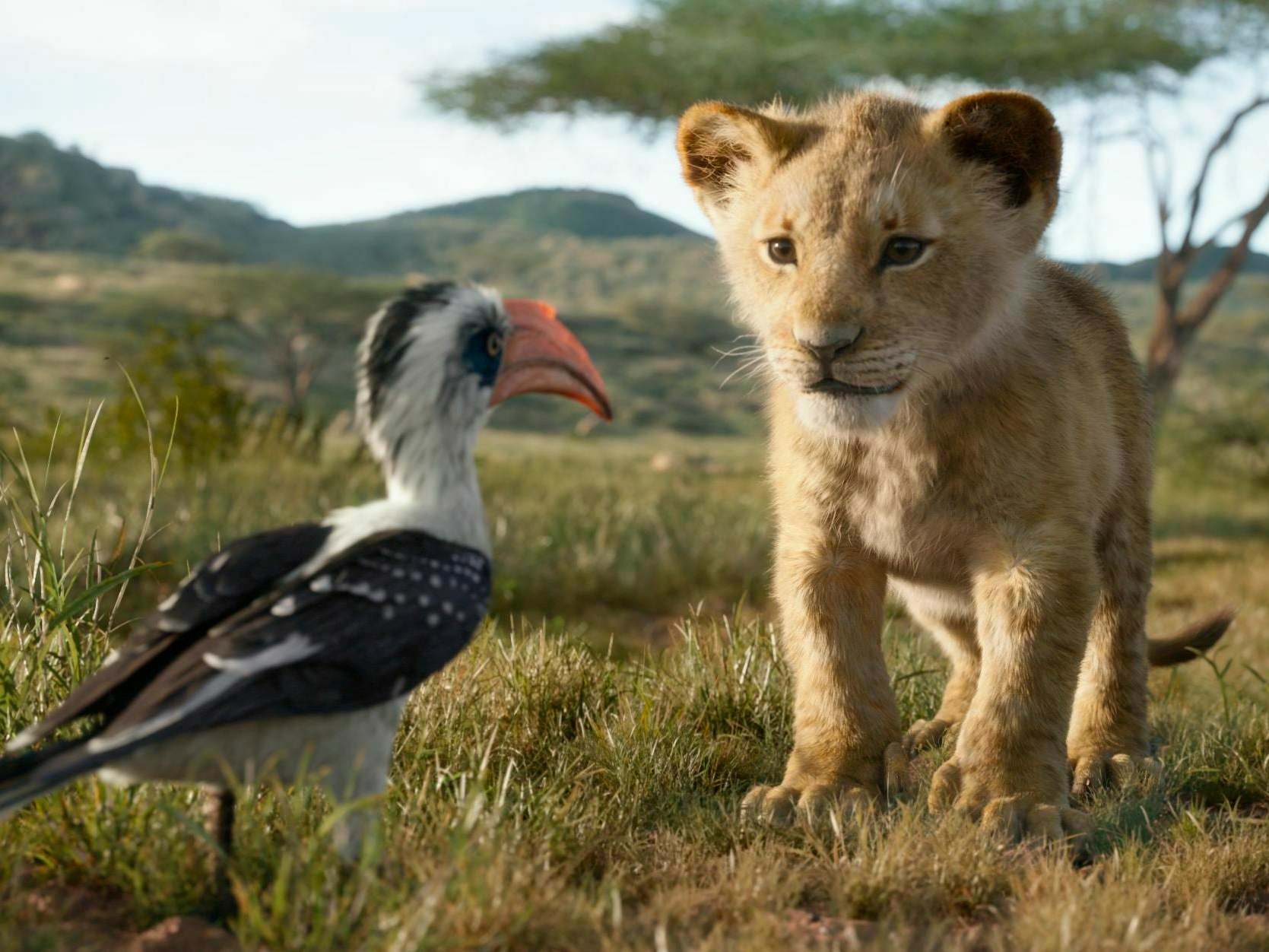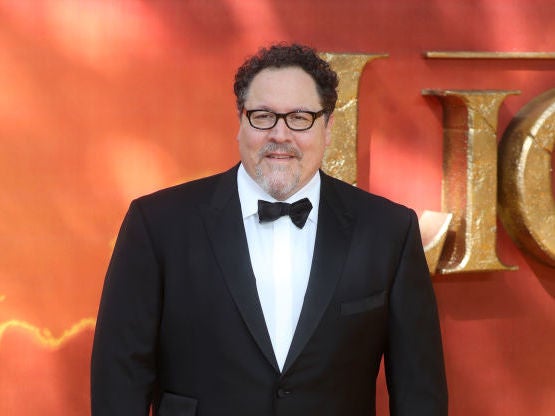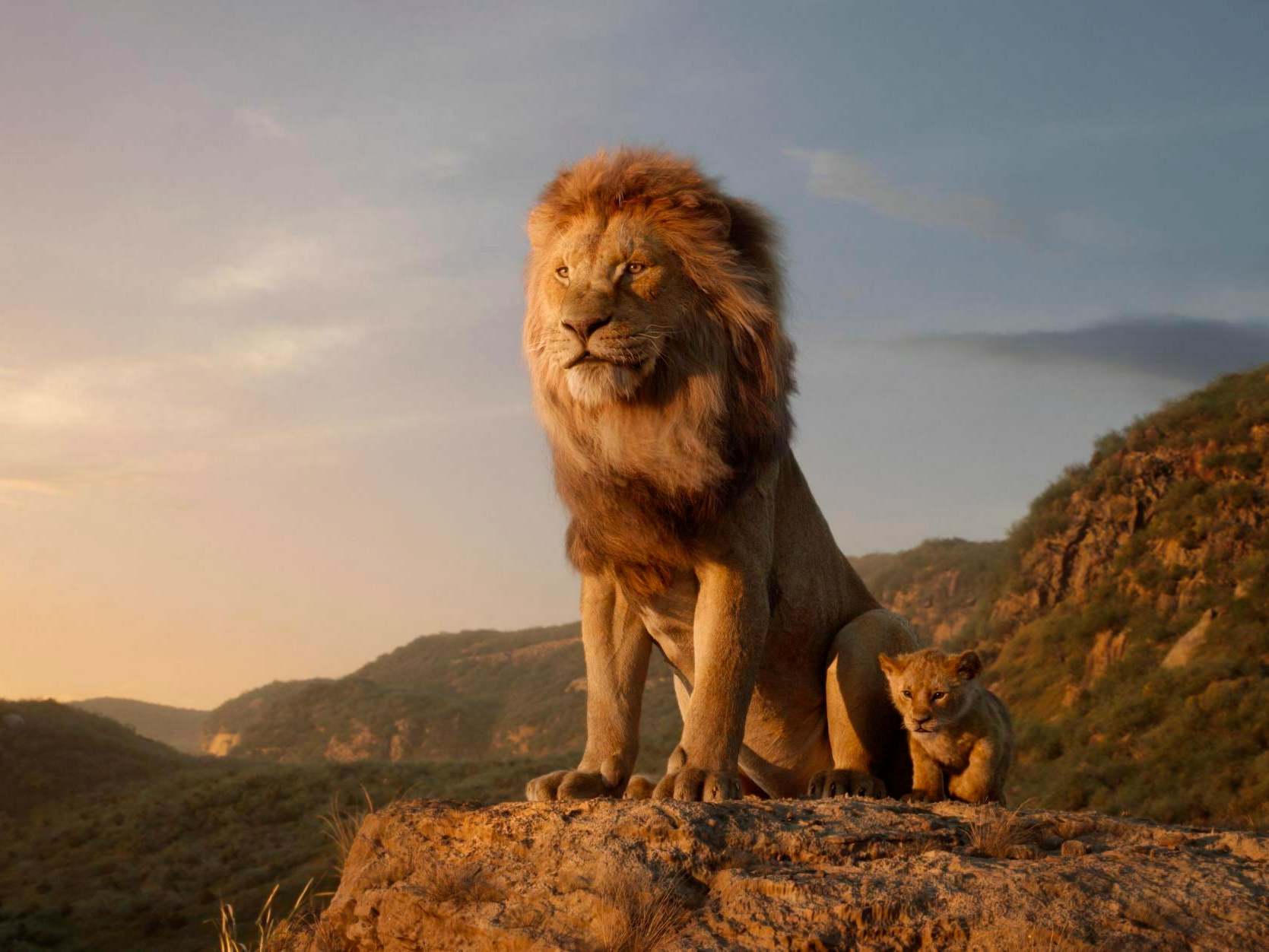The Lion King cast: ‘Anyone can identify with these characters’
As Disney’s computer-animated remake is released in cinemas, Clarisse Loughrey speaks to cast and crew including director Jon Favreau, stars Billy Eichner, Seth Rogen and Keegan-Michael Key, and composer Hans Zimmer, about the experience of creating the film and the lessons we can still glean from its story


Hans Zimmer "didn’t want to play" The Lion King at Coachella Festival. The composer – who not only scored the 1994 animation but is responsible for many of the greats (from Gladiator to Inception) – had, decades into his career, gone on tour for the first time.
Zimmer been “badgered” into it by Pharrell Williams and ex-Smiths guitarist Johnny Marr, he claims. They told him: “There comes a point where you can’t hide behind a screen anymore, you have to look people in the eyes.” He caved in to their demands and, in 2017, secured a slot at the Californian festival, although he didn’t feel like including the Disney musical on his setlist. That is, until Marr’s 23-year-old son Nile confronted him and said: “Hans, get over yourself. It’s the soundtrack of my generation. Play The Lion King!” And so, Zimmer played The Lion King.
“For the first time, I looked out across a sea of people, and I saw that it meant something to them,” Zimmer, who won an Academy Award for his score, says. “It meant something to everybody.”
Even two decades since the film’s release, it’s impossible to deny the impact it had on a generation. Still the highest-grossing 2D animation ever made, it is the film of people’s childhoods – a kind of comfort blanket to return to in times of trouble. It brings families together and has been passed down between the generations. These are intense emotions that we’re dealing with and ones that Disney’s new remake of the film, directed by Jon Favreau, hopes not only to reignite but to build upon – all with the help of cutting-edge technology and an A-list voice cast including Donald Glover and Beyoncé Knowles-Carter.
We know the story well: the lion cub Simba, heir to the Pride Lands, is rescued from a stampeding herd by his father Mufasa, only to watch as the great king falls to his death. Simba blames himself, not knowing that it was actually his evil uncle Scar who was behind the tragedy. Banished from the kingdom, Simba must learn to rise up, face his destiny, and claim what is rightfully his.

“It unabashedly deals with the human condition,” says Keegan-Michael Key, who voices the hyena Kamari in the remake. “I feel like any human being, from any walk of life, can identify with these characters, especially Simba.”
Key was at university when the film was first released, and was one of the many who immediately saw the parallels to Shakespeare’s Hamlet, along with a few other classic influences. “I felt intelligent watching it,” he jokes. “I was, like, you guys should watch this cartoon. This is a very, very intelligent cartoon.”
For 11-year-old JD McCrary and 14-year-old Shahadi Wright Joseph, who play the younger versions of Simba and Nala, The Lion King is still something they watch with their families. “I see my Dad as like Mufasa,” McCrary says. The film even inspired Joseph to get into acting and, at the age of eight, she was cast as young Nala in the Broadway adaptation.
It’s almost impossible to find a cast member of The Lion King remake who doesn’t have a connection to the original. It ends up lending an air of giddiness to the film’s promotional tour, as if everyone has been caught up in the scale of it, on both a literal and emotional level. When I speak to Dr John Kani, who plays Rafiki, it’s the morning after the world première in Los Angeles. “I’m 75, but I was about 11 years old last night,” he says. “I just allowed myself to believe. I just allowed myself to let the story wash over me.”
Others have the buzz that comes from being in the same orbit as a superstar like Beyoncé (“My mom and I watch Homecoming, like, twice a week”, enthuses Joseph). Beyoncé not only voices the adult Nala, but also curated and produced an entire album, The Gift, which was inspired by the film and features a number of its musically talented cast, along with poignant clips from the dialogue.
When I sit down with Billy Eichner and Seth Rogen, who play Timon and Pumbaa, they’re recovering from the film’s UK première, where they shook hands with literal royalty during a visit from the Duke and Duchess of Sussex. There’s a dazed look in their eyes that suggests they are yet to fully snap out of that dream world. You could perhaps put it down to the fact that, in a way, they are standing on the precipice of a new era. When Disney first started integrating 3D animation into its films during the early Nineties, including in The Lion King’s famous wildebeest stampede, it marked the beginning of the end for 2D animation.
Now, as Favreau says: “These new tools and techniques, and the sophistication of the audience in what they want to experience visually has moved on from that. So anything 2D is being made for nostalgia, but it’s not part of the mainstream animation language.” And, just as the 1994 version signalled that major change was around the corner, the new Lion King may well do the same.
Building on what Favreau accomplished with 2016’s The Jungle Book – where a real, human performance (Neel Sethi’s Mowgli) was shot against a blue screen while VFX company MPC created a photorealistic jungle and cast of animals for him to interact with – The Lion King has removed the human element altogether.
Most importantly, it made use of a “virtual set” where Favreau, alongside his crew and cinematographer Caleb Deschanel, could put on VR headsets and enter a digital rendition of Pride Rock. Meanwhile, pieces of camera equipment, including tracks and cranes, were laid out in an empty room and fitted with infrared signals – meaning their movements would be translated onto digital cameras existing within the “virtual set”. This allowed for scenes to be shot in real time, using simplified models of the characters, all by interacting with the physical camera equipment.
“That’s how I’m used to making movies,” says Favreau. “My filmmaking partners are my film crew, and so by having that dialogue, and VR allowing us to all walk around together in this environment, it contributed to this feeling like a live-action version of the film, even though it was animated.”
Although virtual reality had previously been used by filmmakers to help make decisions about certain shots, such as whether the characters of Solo: A Star Wars Story could make the jump between carriages during the film’s train heist sequence, this was the first film to actually capture footage on a “virtual set”. And, while this doesn’t mean every film is about to shot in this way (Favreau says it wouldn’t have worked for Disney’s forthcoming Mulan, for example, which hews closely to the traditional aesthetics of a martial arts film), it may prove useful to any filmmaker who’s trying to build a world from scratch. It’s part of a continuing process of development that has been shared by filmmakers across years of work.

“If I hadn’t done Jungle Book, we wouldn’t have figured out this,” says Favreau. “And had they not made Avatar, we would never have known how to do Jungle Book, and then [James] Cameron was coming to our set, looking at our tools – and he’s working on the new Avatar films. So, we’re all constantly hipping each other to what new techniques we’re using and giving each other ideas.”
Another innovation involved the actors who, normally for a voiceover job, would come in with their scripts, prop them up on a music stand and read through their lines. Not here. “It was very unexpected,” says Eichner. “Jon had this whole performance room set up with cameras all around the perimeter and microphones all over, recording everything we did, and he actually had us physically act out all the scenes. At one point, he had us throw the scripts down and improvise through the entire movie. And a lot of that actually ended up in the final product.”
Key says that it “felt like we were being directed in a play by Jon”, as he was encouraged to move around the space and interact with his co-star Eric Andre, who plays fellow hyena Azizi. The footage would then be handed off to the animators, who would translate their movements from human to animal behaviour in a way that felt organic.
In fact, “organic” was the word of the day when it came to making a photorealistic Lion King work. Take, for example, the film’s main comic relief, Timon and Pumbaa, who in the original were depicted as vine-swinging, hula-dancing Broadway vaudevillians (voiced by stage veterans Nathan Lane and Ernie Sabella).

“I think, for us, we needed to do something a bit more conversational, because the animals looked so real,” says Eichner. “We still have our larger-than-life, over-the-top moment, but it’s a bit scaled down from what the original was.”
It also meant the duo – Eichner, who’s best known for screaming pop trivia at New Yorkers on his series Billy on the Street, and Rogen, Hollywood’s go-to stoner – could let their own comedic voices shine through. “I think that was part of the fun,” says Rogen. “Being able to weave in and out of new material and kind of make people think maybe they were going to get the same joke, but then being able to switch it just enough that it felt a little unexpected and therefore funny.”
It was the film’s trio of hyenas that underwent the most dramatic change. Originally voiced by Whoopi Goldberg, Cheech Marin and Jim Cummings, the characters were the goofiest of the film as they bumbled around the Pride Lands and cackled hysterically at the ineptitude of their leader, Scar. In Key’s opinion, they were created mostly to help diffuse some of the film’s darker moments, but were due a refresh now that filmmakers are starting to “give kids a little more credit” when it comes to handling menace. The new hyenas are not only less silly, but have been fleshed out as characters, fitting into what the actor labels as a “post-Killmonger” world (in reference to the multi-layered villain of Marvel’s Black Panther).

In this new narrative, the hyenas just want to fill their empty stomachs, but end up falling for Scar’s lies and allowing themselves to become pawns in their own selfish schemes. Incidentally, the changes solve some of the accusations that were levied at the original, which painted the hyenas as an ever-multiplying mass of “slobbering, mangy, stupid poachers” in what could easily be read as an anti-immigrant narrative. Although the idea was never actively discussed, Key believes in the importance of seeing these characters from multiple angles. “They were looked at as the faceless horde, but now you have more faces to them,” he says.
Kani also speaks to the depth that was brought to Rafiki, as Favreau encouraged the actor to draw from his own personal experiences. As a highly revered actor, playwright, and political voice in his native South Africa, Kani has found that, at his age, he’s been increasingly invited to act as an elder in the ceremonies of the Xhosa tribes. It’s this role he wanted to impart on Rafiki, who he saw as a kind of sage or sangoma of the lion pride.
“He’s the custodian of the culture and the legacy of this pride of lions,” Kani says. He views The Lion King as very close to Africa’s own storytelling traditions, which have been so crucial in preserving history, as “lest we forget, history tends to repeat itself”. He sees many Scars in Africa’s political landscape… “and in America, I see a lot of Scar in the use of power, the ambition, the power-hungry, the exploitation of the weaker, the using of corruption around you, building a nest of people who believe in you and who would do anything for you. It felt like, in the end, this is a story of us as well.”
Working on the film, Kani was also reminded of the stories his grandmother used to tell him as a child, in which animals would act out various moral lessons. At one point, a young Kani asked her: “‘What do you mean the eagle said to the chicken? These birds can’t talk!’ And she said: ‘They talk in my story, shut up!’ And that was my grandmother.” He then adds, more thoughtfully, that these stories were from a time when “we lived in interdependent with nature, we fed from nature and nature fed us”.
“When western culture developed, we became detached from nature, detached from our relationship with the animals,” he says. “We saw animals perhaps as only the rhino horn, the elephant’s tusk, we saw it as making money. But this movie just took me back to that time when we were all one.”
Zimmer has similar hopes that this new Lion King can bring us a little closer to nature. “We’ve always used animals in a symbolic way, to explain the human condition,” he says.
Perhaps, now, seeing them play out this familiar story in a way that seems so much closer to life, we can start to bridge the gap between animal and man. “I really think we’re starting to see the world differently,” he agrees.
“We’ve suddenly realised that – OK, let’s use Tim [Rice]’s lyrics – we are part of the ‘Circle of Life’. And we need to take care of each other and we need to respect each other, and we need to respect this planet, otherwise we’re not going to have a planet anymore. We need to look after these animals, and if anybody can, it’s us. We’d better do it.”
The Lion King is out now
Join our commenting forum
Join thought-provoking conversations, follow other Independent readers and see their replies
Comments
Bookmark popover
Removed from bookmarks